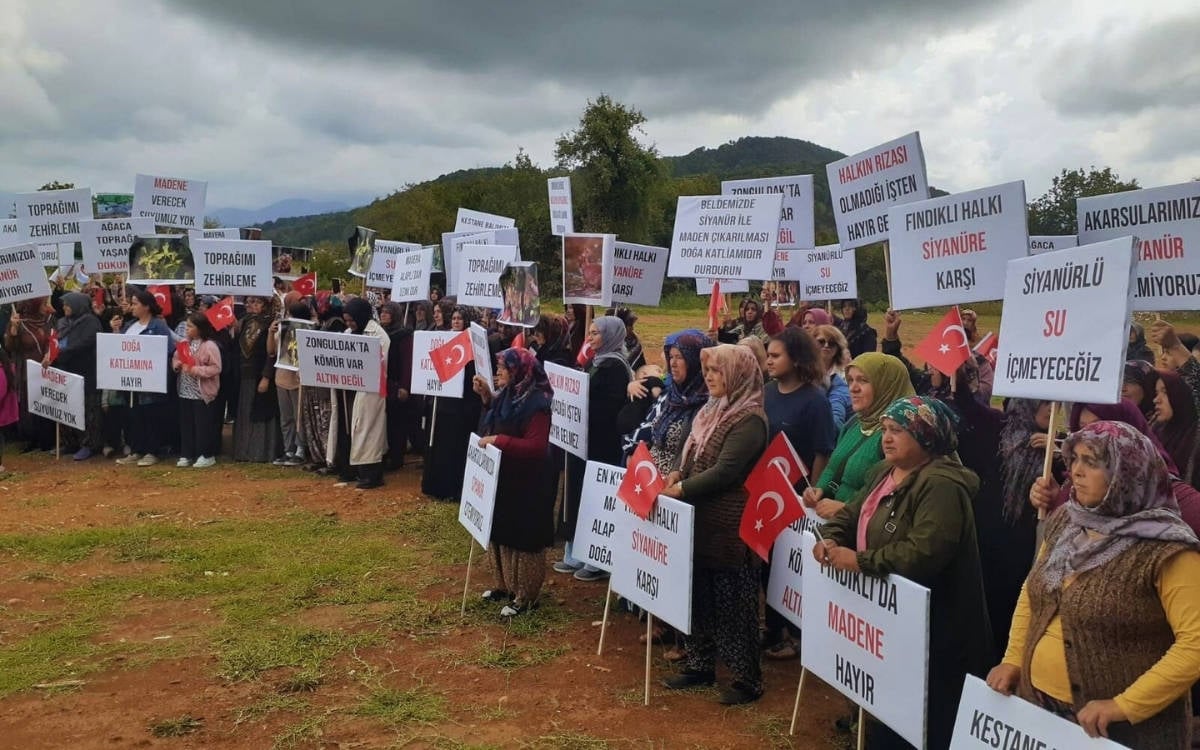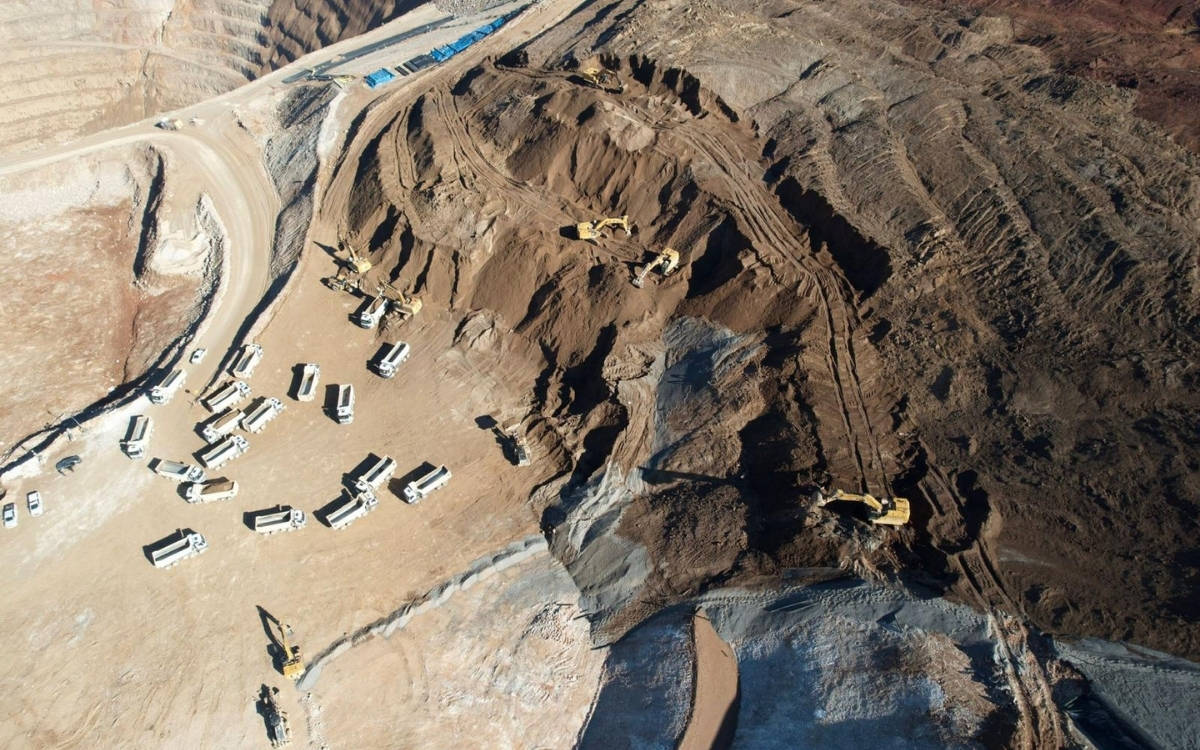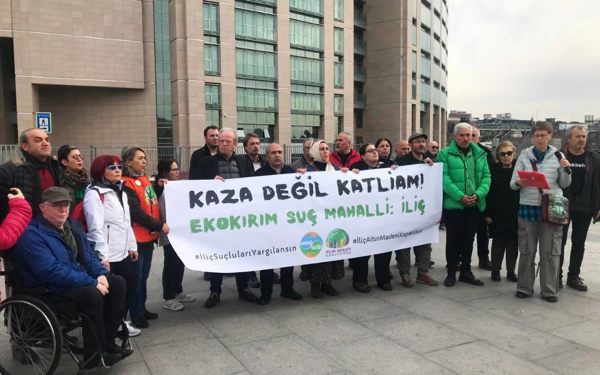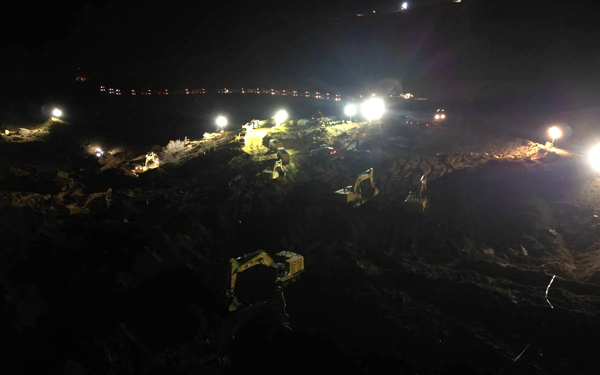Widescale gold exploration license raises concerns in Zonguldak


A private mining company has been granted licenses and permits to search for gold in villages within the Alaplı district of Zonguldak in northern Turkey. The exploration license in Alaplı will also affect neighboring areas, including Devrek, Çaycuma, and Akçakoca.
Experts, local residents, and environmental activists who spoke to bianet warned that the search for gold could result in irreversible environmental destruction.
Mavera Hafriyat Madencilik Lojistik İnşaat, the company licensed by the Energy and Natural Resources Ministry to search for gold in Alaplı, plans to conduct operations in the villages of Fındıklı, Belen, Kocaman, Aşağıdoğancılar, and Kasımlı. However, residents of these villages have launched a resistance against gold mining in their region.
Last month, villagers held protests with signs reading “Mavera, stay away from Alaplı” and “Our pastures have chestnuts and linden, not gold,” while also filing lawsuits. They emphasized that mining activities were approved without consulting any experts and expressed fears of environmental destruction in their villages, which are rich in hazelnuts, linden, chestnuts, centuries-old trees, and drinkable water resources.
‘The active substance is concerning’
Dr. İbrahim Buzkan, a Mining and Geological Engineer, warned that the environmental disaster that occurred in İliç could also happen in Alaplı, saying:
“Years ago, the use of cyanide in gold mining and its harmful effects were hotly debated during the Bergama gold mine controversy. An alternative to cyanide, thiocyanate, was later used to extract gold. While the harmful effects of cyanide have been proven, there is still no scientific research or study on the potential damages and environmental impacts of this active substance. The use of this substance in gold mining is concerning.
“At that time, an expert from Boğaziçi University said, ‘It leaves 30 ppm (parts per million) residue per ton,’ as if it wasn’t a significant issue. But 30 ppm means 30 grams of cyanide residue per ton. Now imagine using 3 million tons—it results in an alarming figure. This active substance, which accumulates in cyanide pools, can harm the environment, nature, and living beings simply by evaporating and coming into contact with the atmosphere.
“In Alaplı, there are quartzite veins in the rocks and centuries-old trees. Just like in İliç and Uşak, tons of trees will be cut down, causing significant harm to nature and wildlife. For this reason, a thorough evaluation prioritizing public benefit must be conducted before proceeding. Otherwise, I see a high likelihood of a disaster similar to what happened in İliç occurring in Alaplı as well.”
‘About 1,000 families rely on hazelnuts for their livelihood’
Environmental activist Çetin Yılmaz highlighted that a 1,173-hectare forest and residential area, covering five villages in Alaplı, has been licensed for mining exploration. He explained:
“The 1,173-hectare mining area contains numerous streams and water sources. The State Hydraulic Works (DSİ) built a drinking water reservoir for the villages in the region. The villages around the mining site, as well as other nearby villages, get their drinking water from this reservoir. Additionally, many villages in Akçakoca are located right on the border of the mining site.”
Yılmaz continued, “Approximately 1,000 families living near the mining site rely on income from hazelnuts. The site also contains a protected area. For example, the Juniper Cave within the borders of Fındıklı village is officially registered as a natural monument under protection. Despite this, they issued a mining license for the region’s most valuable forests and most beautiful residential areas. They even proudly licensed a mining site with a sea view, just 3 kilometers from the Black Sea, which is truly unfortunate.”
‘Don’t take our breath away’
Bayram Sezgin, the headman of Fındıklı village, one of the areas where Mavera Harfiyat Madencilik Lojistik İnşaat plans to conduct gold mining, stated that they would continue their legal fight to protect nature and their future.
“They’re starting environmental destruction in our village without even consulting experts. Don’t take our breath away. The greatest legacy we can leave to our children is this land,” Sezgin said.
Another village likely to be impacted by the mining activities is Belen. The headman of Belen village, Ümit Kocaman, emphasized the richness of their natural resources:
“Our region is incredibly rich in hazelnuts, chestnuts, linden, and a clean, drinkable water basin. We get our water and food from our forests. Conducting mining activities here means the destruction of trees and forests and the use of cyanide. This would deprive us of these precious resources that nature has provided. That’s why, as the residents of the village, we oppose this,” he stated. (CBÇ/TY/VK)
This article was produced with financial support from the Journalism and International Media Center (OsloMet-JMIC) at Oslo Metropolitan University. The content of the article is solely the responsibility of IPS Communication Foundation/bianet and not indicative of the views of OsloMet-JMIC in any way.







